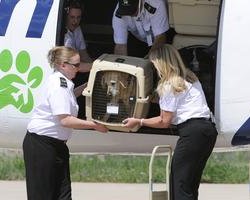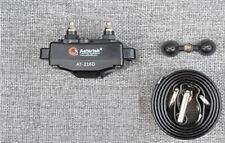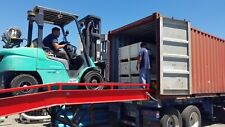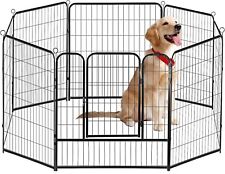ASPCA Releases Pet Travel Tips
When traveling with your pet, the ASPCA says planning is the key. You should start with a visit to your veterinarian to ensure that your pet is up-to-date on all vaccinations, and that you have any medications you might need such as flea/tick prevention and heart-worm medication. Obtain a health certificate from your veterinarian dated within 10 days of your departure for air travel and ask your veterinarian about any particular parasites or health risks that might be associated with your planned destination.
"For many pet parents, a trip’s not enjoyable if the four-legged members of the family aren’t invited. The increase in products specifically geared for pet travel and safety has made the experience that much easier for pet parents," said Dr. Stephen Zawistowski, Executive Vice President of ASPCA Programs and Science Advisor. "It’s all the more reason families should take precautions to ensure that their pet’s travel is trouble-free."
When traveling by air, the ASPCA recommends that your pet should always wear a collar and identification tag that clearly states an address or cell phone number where you can be reached. Additionally, you should clearly display a current photograph on your pet’s carrier and write the name, address, and telephone number of the person receiving the animal at your destination. You should always purchase a USDA-approved shipping crate which should have "Live Animal" written in large letters on all side of the crate, with prominent arrows indicating the upright position. While you should ensure the door is securely closed, it should not be locked so that airline staff can access your pet in case of emergency. They also recommend that you try to book direct flights to avoid delays waiting on the runway in what might be unsuitable weather conditions.
When traveling by car, the ASPCA says you should keep your pets in a secure, well-ventilated crate or carrier. You should make sure it is large enough for your pet to stand, sit, lie down and turn around in. If your dog will be riding on the seat, outfit him with a harness and safety belt to keep him secure in case of sudden stops or changes in direction. Don’t allow your pet to ride with his head outside the window. This can subject the animal to inner ear damage and lung infections, and your pet could be injured by flying objects. Cats should always be in a carrier. It may seem obvious to some, but you should never leave your animal alone in a parked vehicle. Even with the windows open a car can over-heat rapidly on a hot day, resulting in heatstroke and possible death. You should always make sure that you carry bottles of water from home to avoid potential stomach upsets using water your pet is not used to. Lastly, some states require pet rabies vaccination records for interstate crossing so make sure that your pet’s records are up-to-date.














